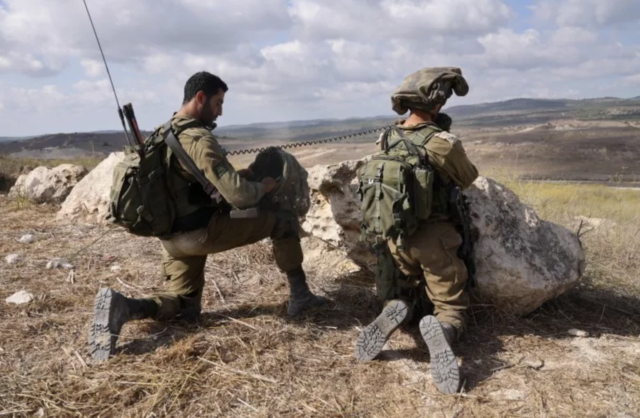There are three primary threads involved in Western containment of the Islamic Republic of Iran, and preventing it from acquiring nuclear weapons capabilities: diplomacy, economic pressure and what the Israelis call “cutting the grass.” Diplomacy can be harsh and can include economic pressure, as in the “maximum pressure campaign” of the outgoing administration, designed to cut off the mullahs’ funds in hopes of either collapsing the Tehran regime or forcing it to enter serious negotiations. It can also be soft, as in the Joint Comprehensive Plan of Action (JCPOA, or Iran nuclear deal) of the Obama administration, offering positive incentives in exchange for limitations or time constraints on threatening behaviors. “Cutting the grass”—reducing or eliminating actual military threats as they emerge in real time—has been Israel’s preferred method, and can be coupled with either of the two others.
“Maximum pressure” and “cutting the grass” have worked in tandem to severely constrain Iran. Hezbollah’s budget has been cut, Iran’s formerly 80,000-strong militia in Syria, commanded by Islamic Revolutionary Guard Corps (IRGC) officers, has been reduced to approximately 10,000, and the people of Iran have been protesting against their government. On the other hand, Iran has found ways to spend its limited funds on its priorities—namely, ballistic missile technology and nuclear weapons capability.
While the incoming Biden administration has made clear its preference for soft American diplomacy, a continuing alliance with Israel—public or tacit—that pressures Iran on the ground can serve both countries’ interests.
In previous years, few Israeli strikes against Iranian assets were acknowledged, other than those retaliating for strikes on Israeli territory that emanated from Syria. In 2014, Israel retaliated for an attack in the Golan Heights that killed an Israeli-Arab child. Israel acknowledged sweeping strikes against Iranian bases in Syria in May 2018, in response to rockets fired by the IRGC’s Quds Force toward the Golan.
But a 2019 strike on Beirut that targeted industrial machinery crucial for manufacturing missile and rocket propellant was not claimed. A BBC correspondent, however, noted: “The Israeli military’s intelligence gathering abilities are remarkable. It hits missile convoys, storage depots, drone bases and industrial sites.” And, because the BBC can’t help it, he added: “But these are tactical successes. In strategic terms, they may slow Iran’s designs, but there is no indication that Tehran is changing its fundamental approach.”
Precisely what Israeli analysts say, minus the sneer.
In the spring of 2020, the Scientific Studies and Research Center in Aleppo, a suspected chemical weapons facility, was hit. A Hezbollah base in southern Syria and an ammunition depot near Homs were next. Al-Arabiya and The Jerusalem Post credited Israel, but there was nothing from official Israeli sources.
Inside Iran, in July an ammunition dump, a power station at Isfahan, a petrochemical plant, a power plant, a gas storage tank complex and the Natanz nuclear facility all suffered explosions. No credit or responsibility was taken.
Of late, Israel has become more willing to announce itself.
In August, Israel found a squad of men planting bombs near the Golan border. Israel eliminated the group on the spot and then acknowledged hitting a military facility near Damascus. In November, after finding more roadside bombs placed by a “Syrian squad led by Iranian forces,” Israel struck again, broadly. In an unusually candid statement, an Israel Defense Forces spokesman said: “It is apparent that the message that we wanted to convey last time wasn’t clear enough—not to the Iranians and not to the Syrian regime. We hope now that the message is clear.”
On Christmas Eve, Israel carried out dozens of strikes in Maysaf, Syria, a militarily sensitive area believed to be the site of an Iranian effort to build a precision-missile factory.
And this week, Israel hit targets near the Syria-Iraq border thought to be related to the storage and staging of Iranian weapons. But although Defense Minister Benny Gantz did say publicly that Israel “is not sitting still” regarding the Iranian presence in Syria, it was an American official who said Israel and the U.S. cooperated on the intelligence—and then an American official who suggested that there was a nuclear weapons component to the warehouses. Israel remained silent, at least officially.
It was also American officials who said Israel and the U.S. worked together to kill a senior al-Qaeda operative in Iran.
While Israel’s theft of Iranian nuclear weapons-related archives from Tehran in 2018 could not be denied—Israel publicly presented the documents—there was no such confirmation of Israel’s involvement in the assassination of Iran’s military nuclear program chief Mohsen Fakhrizadeh, or the assassination of IRGC terrorist extraordinaire Qassem Soleimani in January 2020.
Close coordination between the United States and Israel—confirming some things, denying other things and remaining mum on still others—has not eliminated the Iranian threat. As the Biden administration prepares to take office, Israel’s prime minister is reportedly setting up a high-level team to formulate Israeli strategy and work with the new American team. Mr. Biden should return the favor. Regardless of his interest in engaging the Iranian regime, it would be wise to maintain and strengthen the broad U.S.-Israel diplomatic, military and intelligence relationship that has served to “cut the grass” and keep a lid on Iran’s hegemonic aspirations.






